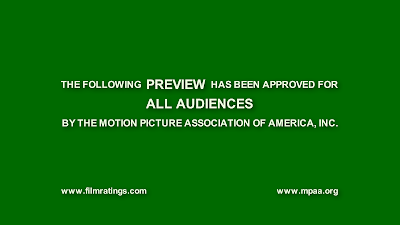I've just read the following article on Deadline, about US cinemas fighting with the big
studios over trailer lengths and scheduling:
studios over trailer lengths and scheduling:
Studio Pushback Forces NATO To Rethink Shortened Trailers For Theaters
The argument essentially boils down to theatre owners wanting more control over what they run before a movie, and the studios aggressively defending the current agreement.
The force with which the studios are fighting the proposals (two of the seven major studios approached offered an instant, flat "No"), suggests they are no longer in touch with the average cinemagoer. Outside of the studio system, production and distribution models are changing fast in response to increased two-way communication with audiences (note recent leaps made by Kickstarter, Netflix, and HBO), and tastes beyond the geek comunity are no longer adequately catered for by the big players.
Major studios are entrenched in a supply-push mindset, i.e. they like telling us what to watch. This is why they still put so much store by cinema trailers. As a means of reaching potential audiences in the age of social media and internet, trailers on the front of a “comparable” release offer a scattershot return at best.
In 2013, the volume of user data generated every day, the advances in demand algorithms and the proliferation of social media mean that marketers in all industries can target ever more, smaller and more specific segments. Even before the era of social media, intelligent marketers were looking beyond cinema trailers and T-sides on every bus in Zones 1 and 2. In one of the back streets of the historic centre of Oxford, England, you can still find 12 Monkeys graffiti, almost 20 years after that movie came out. It was that edginess, totally in keeping with the tone and themes of the film, and not the rather feverish trailer campaign, which got this reticent teen into the theatre.
 Distributors need to recognise that the long tail approach is here to stay. It is more effective and efficient to employ the technology of word-of-mouth than to keep throwing obscene spends at blanket ad campaigns. Over-inflated marketing budgets are the single greatest reason why major studios are becoming risk-averse and fixating on mega-budget franchise builds.
Distributors need to recognise that the long tail approach is here to stay. It is more effective and efficient to employ the technology of word-of-mouth than to keep throwing obscene spends at blanket ad campaigns. Over-inflated marketing budgets are the single greatest reason why major studios are becoming risk-averse and fixating on mega-budget franchise builds.To paraphrase Jason Lee in The Incredibles, when every movie is a tentpole, none of them will be.


No comments:
Post a Comment